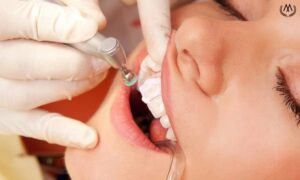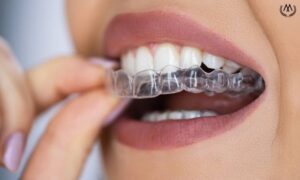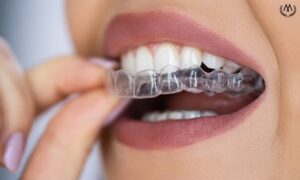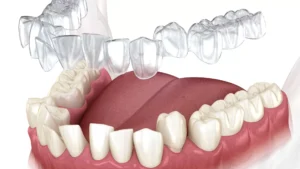Orthodontic treatment is an effective method for aligning your teeth and improving your smile. However, some individuals may experience speech issues during the treatment process. While using MK Aligners, speech problems are typically temporary and can be considered a normal part of the treatment process. Here’s what you need to know about orthodontic treatment and speech issues:
1. Causes of Speech Issues
Speech problems during orthodontic treatment can arise due to changes in the alignment of teeth or the structure of the jaw. When using MK Aligners, temporary speech difficulties may occur as your mouth adjusts to the new positioning of your teeth and the interaction between your aligners and tongue. The aligners are designed to align your teeth, which may lead to temporary changes in your speech patterns as your tongue adapts.
2. Temporary Sensitivity and Adjustment Period
At the beginning of treatment, speech issues are often temporary and tend to decrease as you get used to wearing your aligners. It may take some time for your teeth and tongue to adjust to the aligners. During this adjustment period, you might experience slight discomfort or difficulty in speech. However, this usually improves within a few days as you become more accustomed to the aligners.
3. Speech Exercises and Techniques
To reduce speech problems, you can try specific exercises and techniques. For instance, reading aloud or repeating certain words can help retrain your speech patterns. Additionally, following any speech exercises recommended by your dentist or a speech therapist can be beneficial in improving your speech.
4. Gentle Adjustment Process
To minimize speech difficulties, it is important to wear your MK Aligners as prescribed and consistently. By wearing the aligners for the recommended duration and speaking slowly, you can help your mouth adjust more quickly. Being patient and gently guiding your tongue in alignment with the aligners during speech can also aid in a smoother transition.
5. Communicate with Your Dentist
If your speech issues persist or become bothersome, it’s important to communicate with your dentist. They can ensure that your aligners are fitting correctly and provide suggestions to help manage any speech difficulties. In some cases, your dentist may recommend additional adjustments or support from a speech therapist.
6. Be Patient with the Treatment Process
Experiencing speech issues during orthodontic treatment is normal and usually a temporary phase of the process. Remain patient and continue wearing your aligners as instructed. Over time, your speech difficulties should diminish as you become accustomed to the aligners.
7. Keep Up with Regular Check-Ups
Don’t skip your regular dental check-ups during the orthodontic treatment. Your dentist will monitor the condition of your teeth and aligners, and check for any issues. Regular visits help to address any concerns with your speech and ensure that your treatment is progressing as planned.
Conclusion
Speech issues during orthodontic treatment can be managed with proper care and patience. Using MK Aligners may cause temporary speech problems, but with consistent use, speech exercises, and communication with your dentist, these issues are usually resolved. Maintaining regular dental visits will help ensure a successful treatment outcome and a smooth adjustment process.





